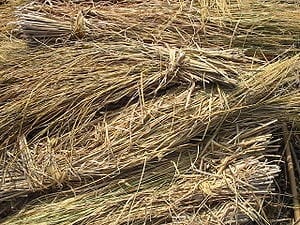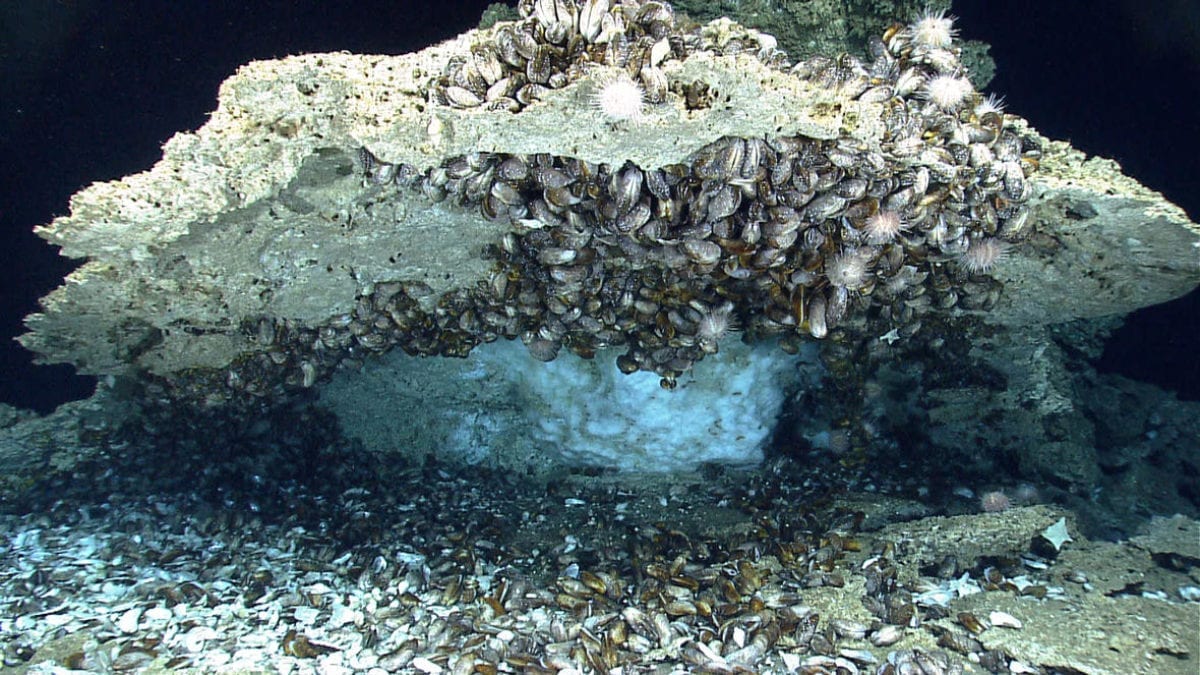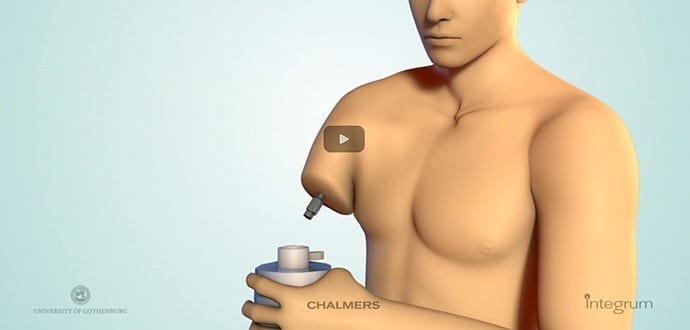
Efforts to use biomass rather than burning it in the fields could help ease China’s energy needs, displacing coal and cutting air pollution
SHANGQIU, China — This is not the equivalent of Silicon Valley. There isn’t a lab in sight or a high-tech industrial park in the area. What attracts most of the attention is a two-floor factory building with a signboard that reads “Shangqiu Sanli New Energy Demonstration.”
Still, this is a noteworthy place. It is healing one of China’s long-standing headaches.
That headache is straw, basically an agricultural waste collected from nearby farms. Workers here chop it, compress it, then heat it slowly in sophisticated, oxygen-free ovens to produce biochar, a sort of charcoal that can be used as soil amendments. What remains — two types of liquids called wood tar and wood vinegar — are removed to sealed vessels and are sold as eco-friendly pesticides and soil conditioners.
Through this, the factory produces industrial goods worth nearly $10 million per year. The process also produces a combustible gas that it converts into electricity — to run the machinery.
China has lots of straw. The nation is scrambling for ways to dispose of this agricultural waste, and companies like Shangqiu Sanli New Energy Ltd. are among a few that have succeeded. But figuring out how to scale this up remains a daunting challenge.
At the end of harvest season, China’s breadbaskets, from the Yangtze River Delta on the coast to the landlocked Sichuan Basin, turn into a sea of baled straw. In some places it can extend to the horizon.
Chinese farmers used to store straw for cooking and heating. But with their rising incomes and growing desire for an easier life, more rural families began buying coal briquettes and bottled liquefied petroleum gas instead. So they simply set fire to straw.
Burning straw is a major cause of smog. The smoky air also has a pungent odor that causes coughing and other health problems. Sometimes it even costs lives as dense, eye-smarting smoke clouds drift over roads and lead to car crashes.
Lawmakers here have tried to ban straw burning, but farmers in a hurry to clean fields for the next planting often ignore that. In places like eastern China’s Anhui province, the government sent drones aloft to identify the straw burners.
Tapping into folk wisdom
In 2005, after hearing about farmers in neighboring villages being jailed for burning straw, Lin Zhenheng, then a 48-year-old entrepreneur, decided to seek a solution.
Lin’s company, Shangqiu Sanli New Energy, first consulted farmers who have mastered the use of straw for years. Then it brought in some experts. About a year later, the company came out with a pilot facility in the heart of Henan province, one of China’s major crop-producing regions.
The facility turns straw into biochar and wood tar, cleaner-burning alternatives to diesel fuel. It also produces wood vinegar out of straw — a liquid that makes nonarable soil grow crops. The facility captures a large quantity of combustible gas from the process to meet its own energy needs and to heat a nearby hotel and a public bathroom — a popular facility in rural China.
The company later found that its biochar can improve soil quality and its biodegradable wood tar can kill pests in farmland while doing little harm to Earth.
The discoveries have whetted Lin’s appetite for more straw business. His company now runs seven such facilities across the region and disposes of 200,000 tons of straw every year.
The Latest Bing News on:
Energy from straw
- Statewide View: Four reforms enacted now could benefit all Minnesotanson May 2, 2024 at 1:35 pm
But what if we stepped back to consider policies that, although not correcting every ill facing our state, would improve the lives of Minnesotans and have the potential to garner broad bipartisan ...
- A coffee-brewing straw? This portable device makes a 'buzz'-worthy Mother's Day gift, and it's down to $25on May 1, 2024 at 9:46 am
According to the brand, this small yet mighty straw allows you to enjoy French press-style coffee no matter where you are. Prime members can snag this pocket-sized java brewer for just $25 (down from ...
- Opinion: Straw prices are giving me heart palpitationson April 29, 2024 at 4:01 pm
One way or another, we are in the process of waving goodbye to winter 2023-24. As I’m sure is the case with every farmer, the waving is predominantly ...
- Building a Better Future with Straw Constructionon April 26, 2024 at 12:53 pm
Recently meeting with experienced straw builders, I couldn’t help but recall the classic tale of the three little pigs, where the house made of straw famously didn’t stand the test of time. Intrigued ...
- One Piece: Every Straw Hat Pirate's Age, Height, And Birthdayon April 24, 2024 at 7:14 am
The Straw Hat Pirates are one of the youngest, most ambitious crews in One Piece. This is everything you need to know about them. Updated April 24, 2024: One Piece is steadily marching towards its ...
- A Straw in the Wind - Will Achieving Grid Parity Propel India’s Offshore Wind?on April 22, 2024 at 10:47 pm
Pursuing India’s offshore wind ambitions is not only about reaching grid parity but also about navigating the complexities of implementation, mitigating risks, and ensuring inclusive development.
- Here’s the truth: energy transition is hard. Not everyone gets a ponyon April 22, 2024 at 6:30 pm
Jobs will change, communities will be affected, but we have a shot at rising to the challenge of global heating ...
- Prince Harry's 'last straw' with Royal Family exposed by expert after 'slap in the face'on April 22, 2024 at 4:12 am
Prince Harry endured his "last straw" with the Royal Family back in June 2023 and few people really realised what a "slap in the face" it was for the Duke, claims a royal expert. And now an expert ...
- Key architect of Eric Adams straw donor scheme pleads guilty to larcenyon April 18, 2024 at 12:15 pm
A key architect of a straw donor scheme to help get New York City Mayor Eric Adams (D) elected pleaded guilty to larceny Thursday. Shamsuddin Riza, who owns a construction company, pleaded guilty ...
- A Guide to the Chicest Designer Straw Bags for the Seasonon April 15, 2024 at 9:35 am
Every item on this page was chosen by an ELLE editor. We may earn commission on some of the items you choose to buy. In today’s world of fashion, where trends evolve at the click of a button ...
The Latest Google Headlines on:
Energy from straw
[google_news title=”” keyword=”energy from straw” num_posts=”10″ blurb_length=”0″ show_thumb=”left”] [/vc_column_text]The Latest Bing News on:
China’s Energy Needs
- China's hydro output primed for boost after heavy rainson May 7, 2024 at 10:03 pm
China's hydro dams generated their lowest share of total electricity output in at least eight years during the first quarter of 2024, but look primed for a rebound following heavy rains across key ...
- Biden’s Climate Policies Playing Into Hands of China’s Energy Schemes, Experts Sayon May 7, 2024 at 12:00 pm
Experts warn that Biden's climate policies may enable China to dominate the renewable energy sector, making the U.S. reliant on supply chains.
- The energy shift is the economic race of the century. What will the US do to win?on May 7, 2024 at 11:00 am
However, this paradigm shift in the global economy is a marathon, not a sprint. That means America can still catch up. To do so, the next administration must double down on the Inflation Reduction Act ...
- Europe faces a dilemma over China trade tariffs as investment and export needs weigh against cheap EV fearson May 7, 2024 at 7:13 am
Still, Europe needs China not only as an export market but “because it cannot afford to lose access to indispensable inputs for its desperately needed energy transition,” she added. Here are some ...
- Will making hydrogen ‘green’ depend on China?on May 6, 2024 at 3:54 am
Machinery that makes hydrogen fuel from water could become another energy technology whose production is centered in Asia.
- Renewable Energy Needs to Be Stored. China Is at the Forefront.on May 3, 2024 at 7:34 am
Environment ministers from the G-7 Western economies have targeted a sixfold increase in storage for renewable energy by 2030. Most of that will come from battery energy storage systems.
- China's top climate envoy is coming to the US this month as tensions over green tech run highon May 2, 2024 at 6:50 am
The meeting comes as the US and China jockey for power over renewable technology like solar, EVs, and batteries.
- Oil Going Down While China’s Energy Mix And Emissions Doing A Backflipon April 28, 2024 at 7:42 am
China’s plans and progress for the energy mix have been upended, as Table 1 reveals. Take China’s primary energy supply. From 2030 to 2050, solar and wind will increase from 7% to 41%, a multiple of 7 ...
- The red flags that will tell us when China's actually ready to invade Taiwanon April 27, 2024 at 3:08 am
Signs are growing that China could be readying for a showdown over Taiwan. These are the warning signs China experts closely track.
- The Preschool Solution To The Energy Transitionon April 24, 2024 at 10:09 am
We would have already solved climate change if we practiced what we teach our preschoolers: “Playing together starts with sharing together.” ...
The Latest Google Headlines on:
China’s Energy Needs
[google_news title=”” keyword=”China’s Energy Needs” num_posts=”10″ blurb_length=”0″ show_thumb=”left”]










